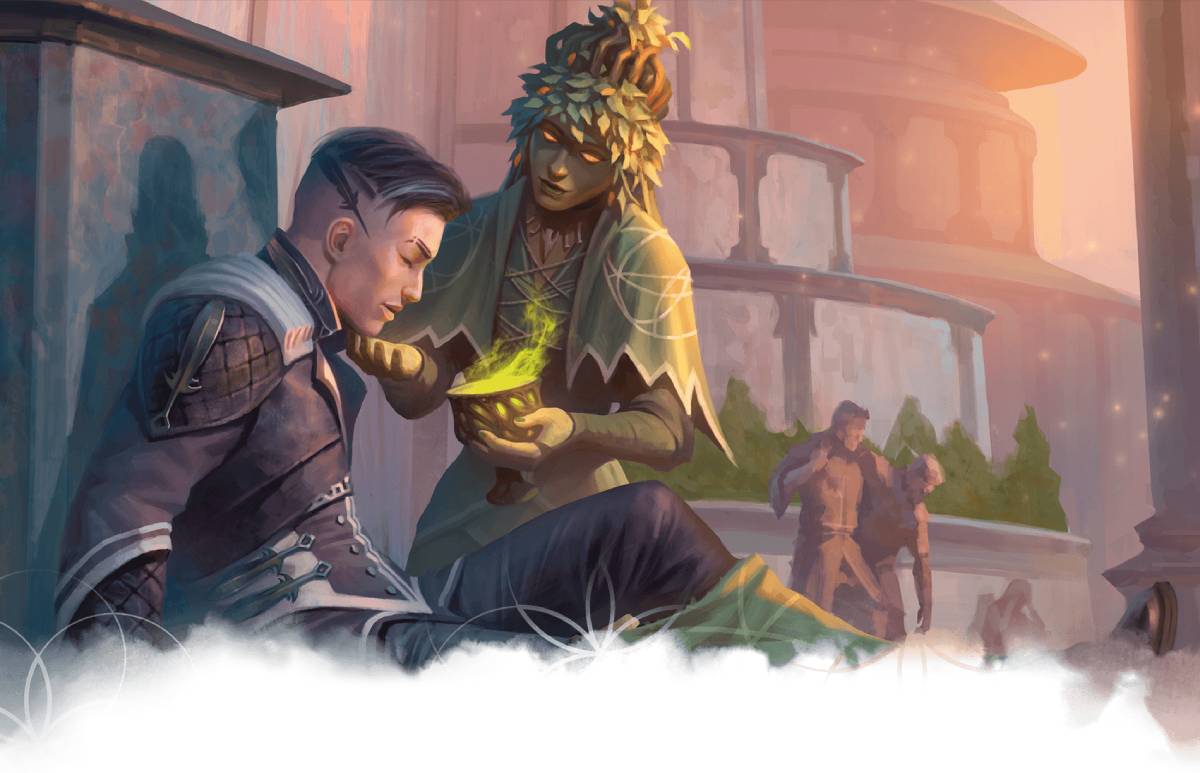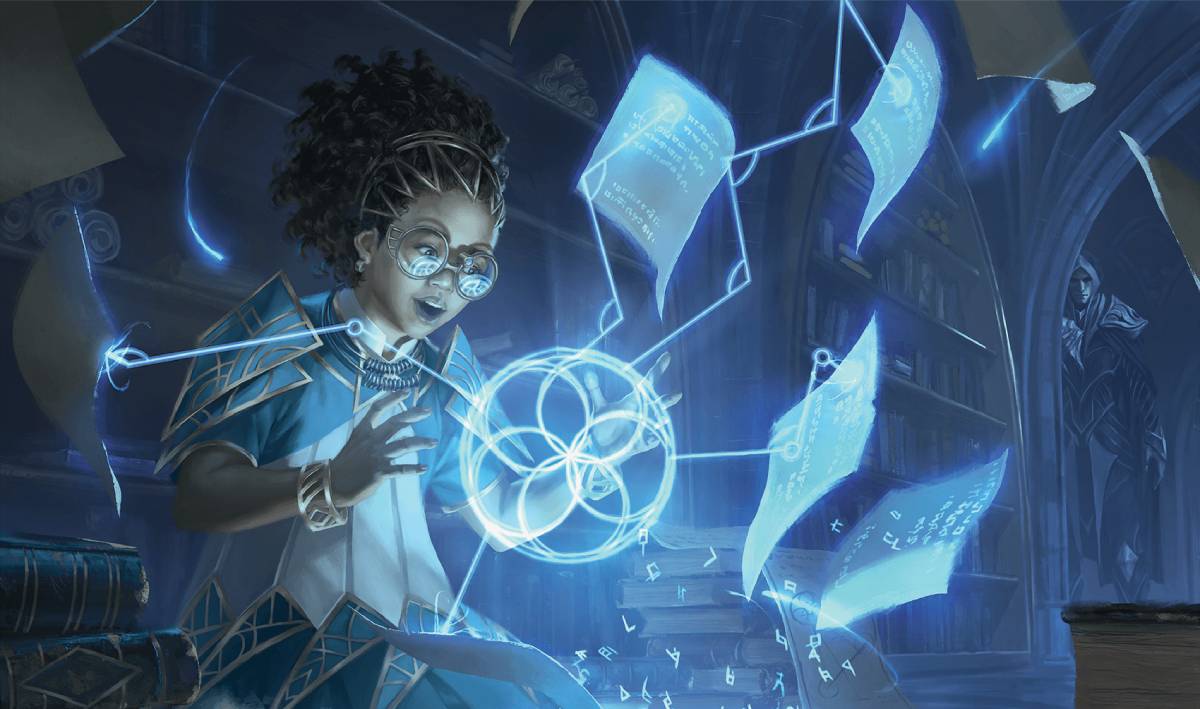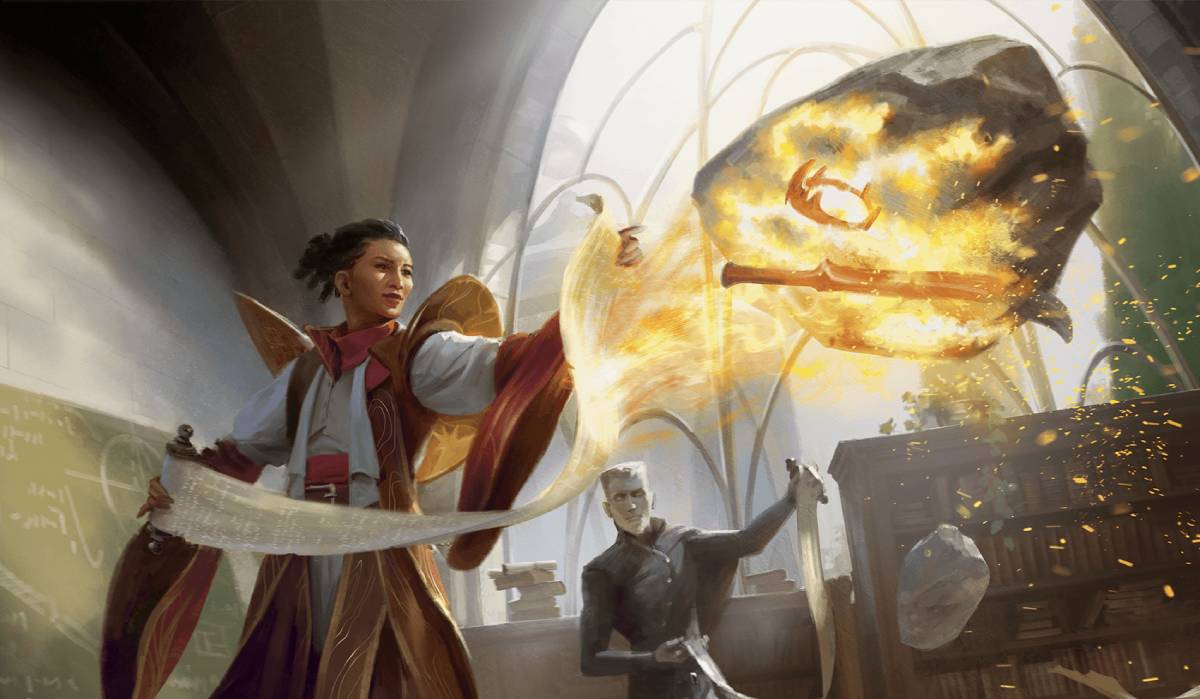
[ad_1]
You pick up a component pouch and then you and your DM forget about it entirely. You need diamonds for that revivify spell, but you never roleplayed how you got them when preparing the spell for usage.
Every D&D spell some combination of a verbal, somatic, or material components, but while most players and DMs are aware of limitations on spellcasting if a character is immobilized or silenced, we often overlook them or handwave the need for the material components required in many of D&D’s most commonly used spells. But doing so often skips over some great opportunities for roleplay, which we’ll explore in this article!
What Are Spell Components?
Within D&D, spell components are mechanical features that represent the process by which a spellcaster actually works their magic. Many of us fall into a habit of just saying, “I cast fireball” and moving onward to the target’s saving throws and then the damage rolls. The character, however, is making somatic motions, speaking the words to cast the spell, and using a bit of bat guano and sulfur to cast the spell.
For most spellcasters, a focus can be used instead of that guano and sulfur. Different spellcasting classes have appropriate foci, such as wands or staffs for wizards and sorcerers or musical instruments for bards. Alternatively, it can be stated that the character has a component pouch that is understood to contain the materials needed for casting. Both of these can be, and frequently are, used in place of tracking specific material components unless the component has a monetary cost attached to it.
But just because you can avoid using material components in your game doesn’t mean you have to. Before you pick up that pouch or focus, we’ve got some ideas to inspire you to use material spell components in your game.
Why Use Material Components?

Many D&D spellcasters can use a focus to cast spells instead of material components unless the component has a cost indicated with it. Many players might prefer to have their characters just wave a wand or shake a staff rather than open a bag of materials to cast a spell, but let’s talk about some reasons why you might actually want to embrace using spell components in your game.
- Emphasizes magic as a “craft.” Using material components can give a spell the feeling of being something that a caster has to formulate using their own hands. It gives magic a more tactile, physical feel than other types of spellcasting.
- It fleshes out the fantasy world. Having items in your world that imbue certain magical properties helps give the world a sense of fullness. Having items that can be sought out creates a magical ecosystem of sorts. It helps emphasize generations of spellcasters who have come before that have worked out how to craft spells and how to unlock the properties within certain items.
- Allows magic to feel like a limited and complicated resource. While most D&D realms are worlds where magic exists, it’s not always a common power that your average citizen can tap into. If magic is easily accessible, it can start to feel too normalized. Leaning into components allows for a greater sense of a need to manage magic as a resource that spellcasters have to work for.
- Gives a distinction between different forms of magic. D&D spellcasting comes in different varieties. Even when two spellcasters mechanically have an identical spell, the nature of how they cast is different. Leaning into the components of casting can help distinguish between someone who has learned how to do magic as a technical set of steps versus someone for whom magic comes as a natural ability.
- Can add balance to high-level games. Spell components are a factor in balancing higher-level spells, whether they’re attached to a gold value or ones that are usually more for flavor. While spell slots do a lot to make sure magic remains finite in a game, maintaining material components can also be well-used to ensure that adventures still feel like a challenge.
- Can add a challenge to long-term campaigns. If you have a D&D campaign that stretches out for months or even years, a stricter focus on tracking specific material components can add a task for players who like working with resource management options.
- Great way to personalize spells. While most spells calling for material components might tell you what that component is (i.e., a drop of water, a piece of glass, or a live flea), there’s rarely a description of how that component gets used. This is a great prompt for inspiration on how differently you can roleplay how your spellcaster uses their component. For example, darkness calls for a piece of coal. One caster might shake some dust from the coal into the air, while another might make drawing motions with their piece. Both create magical darkness but via different techniques.
How DMs Can Use Components To Craft Story

As a DM, you can do a lot to make components a part of your stories. Even simply remembering and acknowledging the spellcasting items your players pick up will go a long way. Here are some more DM-specific tips for making component usage feel fun and valuable for your players.
Use the Search for Components as a Roleplaying Opportunity
Seeking out specific spell components can be a fun side quest or downtime opportunity. This is especially true for the components attached to powerful spells like heroes’ feast and its 1,000 gp gem-encrusted bowl. Such an item isn’t likely to be sitting on a shelf in a random shop. Perhaps, an NPC has one they’re more willing to part with if the adventurers do them a favor and deal with the shady characters in town trying to shake them down for protection money.
This kind of component quest can be scaled up or down based on how rare an item is. If something is scarce but perhaps not “gem-encrusted bowl” scarce, the players could just settle a disagreement between two neighbors or deal with some pests in the basement. Or maybe characters will need to search a garden or field in order to find the perfect herb for a spell the first time, providing a cutting that they can grow additional plants off of in the future.
Don’t Treat a Lack of Basic Components as a Punishment
Spell components and other similar rules should feel like an enhancement to the game. If players feel like they’re not able to have fun and enjoy the adventure because they’re missing specific named components, it can have a pretty negative impact on the table culture. It’s a good idea to discuss spell component expectations and reasonable levels of commitment for components during your session zero. Some players might want to keep elaborate spreadsheets of each component they have. Others may prefer just to buy a component pouch containing whatever non-monetary components they need for the spells they have prepared, whether bat guano or a few drops of water in a vial.
Let Important Components be Loot Rewards During Dungeon Crawls
If you’re struggling to think of interesting items for characters to find while looting rooms, material components for spells can help players feel rewarded for their Intelligence (Investigation) rolls. Often martial classes like fighters will find powerful new weapons and armor inside of dungeons, and this option helps spellcasters feel motivated to search for items more as well.
Other ways characters could be rewarded with components could be more specific to their class. A wizard might get a component pouch from a mentor, a cleric might collect some from their temple, and a warlock might happen across some that are a boon from their patron.
Reward Interesting Component Roleplay Choices
Allowing players some free reign over how they utilize components can allow for some really fun, memorable moments at the table. As the DM, you have the ability to reward interesting spellcasting roleplay choices in ways that motivate and excite them to make more of them. Inspiration rewards, lowering a DC, or even just adding to the roleplay are all examples of ways you can make a player feel good about their roleplay decisions.
As a DM, you have the power to use epic story moments to highlight characters based on how they choose to do their magic. If you like giving players hero moments, consider having a character be able to cast spells when others might be prevented from doing so due to a story-driven inhibition.
Encourage Players to Consider Spell Components When Creating Their Own Spells
When using the spell creation rules found in the Dungeon Master’s Guide, have players consider what material components might be used in lieu of one that already contributes to another spell. Let them imagine what sort of study went into building their newly discovered magical effect by analyzing some previously unused ingredient.
Spell Component Tips for Players

As a player, the primary reason for wanting to use components in your casting will come down to roleplaying it for flavor. Here are some things to consider when making a component pouch part of your character’s vibe.
Give Your Characters a Reverence for Magic
For many spellcasters, magic isn’t just an ability they have but a practice they’ve devoted themselves to. Think of the way artists in real life might nerd out intensely over the intricacies of their craft. The way a musician might analyze the way harmony and melody fuse together, or don’t sync up, in a piece of music. Let your characters approach their spellcasting with that same sense of awe and wonder. They can literally do magic!
Give Personal Flourishes for Your Casting
Really think about what it looks like when your spellcasters do their spells. Like I said above, the way your particular character uses their components can be vastly different from how someone else does it. So when you pick new spells for your spellbook, really think about what went into your character learning that spell, and have fun describing the motions of casting.
Think About How Components Reflect the Type of Caster You Are
Many D&D spells are mechanically shared by multiple classes of spellcasters, even though those casters represent very different ways of working magic. A cleric or druid using components might be making an offering to a deity or primordial spirits, a warlock might be fueling their connection to their patron, a wizard might be pulling from the muscle memory from the many, many times they had to practice it while being trained.
Allows for a Backup to Your Focus
It’s great to have a staff, wand, lute, etc., to channel your magic through, but what happens if it gets damaged or stolen? Maybe it’s not so easy to find a new sacred amulet that connects you to your deity, for example, but you can at least pick up some supplies in a shop to hold you over till you do.
Make Foci More Important to Your Character
While we’re talking about the importance of material components, don’t discount how valuable a spellcasting focus is to a spellcaster. While foci can be gained at character creation and don’t require attunement, lean into the way that a spellcaster has mastered casting using their specific focus. Maybe your character does not know how to use material components to cast their spells, and if their focus gets damaged or stolen, lean into being limited to spells that only require vocal or somatic components. Make them ache for their focus and miss its grip in their hands. Roleplay that frustration. Similarly, roleplay their joy when they’re reunited, or a suitable replacement is found.
Abracadabra!
These are just a few of the ways that both players and DMs can use material components to boost spellcasting fun in your games. Think about how spellcasting is typically used in your games and if components could shake up some elements or perhaps balance out a game that has been in need of it.
Riley Silverman (@rileyjsilverman) is a contributing writer to D&D Beyond, Nerdist, and SYFY Wire. She DMs the Theros-set Dice Ex Machina for the Saving Throw Show, and has been a player on the Wizards of the Coast-sponsored The Broken Pact. Riley also played as Braga in the official tabletop adaptation of the Rat Queens comic for HyperRPG, and currently plays as The Doctor on the Doctor Who RPG podcast The Game of Rassilon. She currently lives in Los Angeles.
[ad_2]





